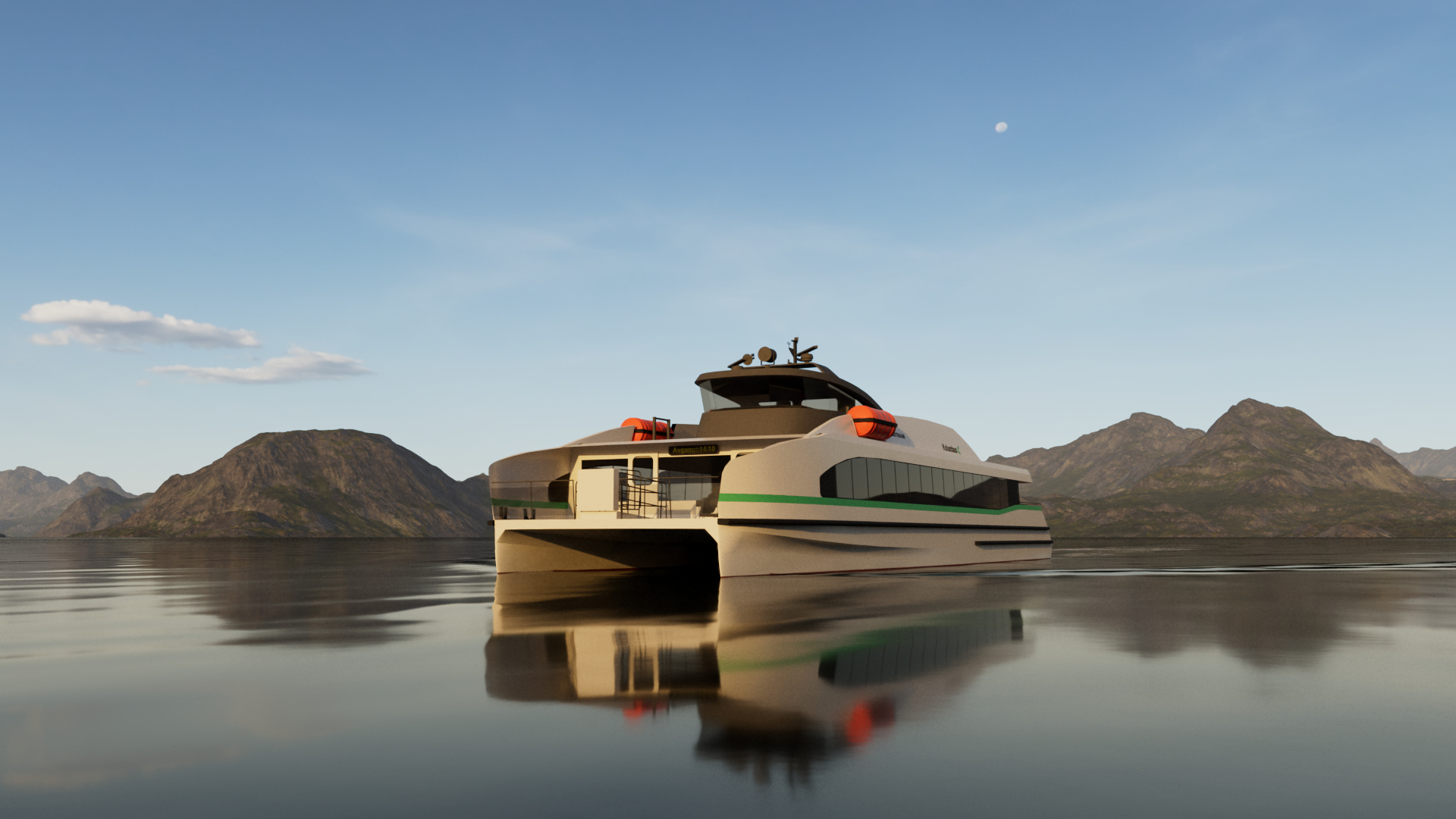At Servogear, located on the west coast of Norway, innovative propulsion systems have been made for nearly fifty years.
Now the company counting 50 employees, has taken on one of its greatest challenges so far, making the complete propulsion system for the EU-funded TrAM project vessel Medstraum.
– The two most crucial things when you are optimizing the propulsion system for a high-speed vessel, is to have the efficiency as high as possible and to reduce the weight of the vessel, says Business Development Manager at Servogear, Torleif Stokke.
The production of the propulsion system is nearly completed. Soon it will be shipped to Fjellstrand yard where it will be installed on Medstraum.
Green revolution
– The TrAM project has helped Servogear to develop two new innovations: A new generic propeller series named the E-flow propeller, and a carbon fiber reinforced propeller brackets. We have been astonished by the extreme increase of efficiency on which we can gain from these two innovations. We have seen efficiency increase by over 20 percent, compared to a traditional propulsion system. And the weight of the propulsion system is also reduced by 15 percent, compared to a standard system, says Stokke.
He is glad Servogear decided to join the 12 other partners in the TrAM consortium.
– It has been a great success for us to be a part of this big EU project, developing the world´s first fully electric passenger fast ferry. We have learned a lot, and I think we have also added value to the other partners, says Stokke.
About the TrAM project
The TrAM consortium includes 13 European partners and is coordinated by Rogaland City Council (NO) through its independent mobility services company Kolumbus (NO) which will also own and operate the demonstration vessel. The demonstrator is designed and will be built by Fjellstrand shipyard (NO) with an energy system provided by Wärtsilä (NO) and a propulsion system by Servogear (NO). Vessel modules will be delivered by Leirvik (NO) with aluminum supplied by Hydro Extrusion Norway (NO). Fraunhofer (D) leads the work in adapting modularity models from the automotive and aviation industry to the needs of the maritime industry, in addition to smart city integration. University of Strathclyde (UK), National Technical University of Athens (GR), and HSVA (D) are consortium members responsible for R&D, simulation, and testing. Dissemination activities are provided by NCE Maritime CleanTech (NO) and owners of the replicator cases are Uber Boat by Thames Clippers (UK) and De Vlamsee Waterveg NV (B). The TrAM H2020 project has received funding from the European Union’s Horizon 2020 research and innovation program under grant agreement No 769303.

